NFER adopts a “Circular Recovery Process”, reducing the use of non-renewable resources which lowers Carbon Emissions and promotes zero waste
Waste Facility Permit:
WFP-DS-23-20001-02
Waste Facility Permit:
WFP-DS-23-0001-01
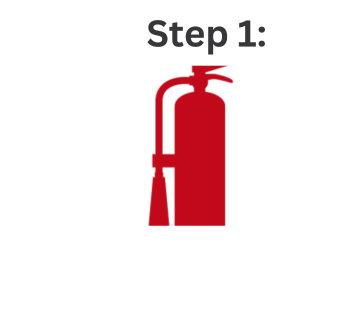
Fire Equipment inspected and condemned at Generator site during scheduled service
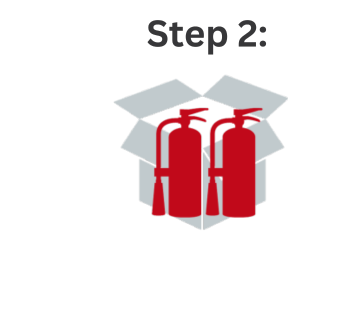
Waste Equipment made safe with Safety pin/Tamper Tag/Transport Cap and packaged in accordance with ADR
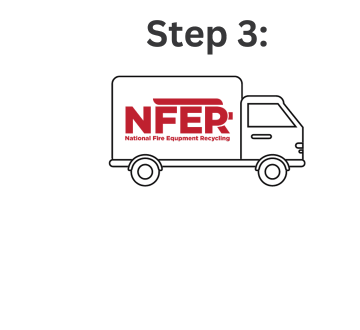
Waste Equipment removed from Generator site and transported with Waste Transfer Permit to The National Fire Equipment Recycling Authorised Waste Facility in accordance with ADR Regulations or we can arrange collection
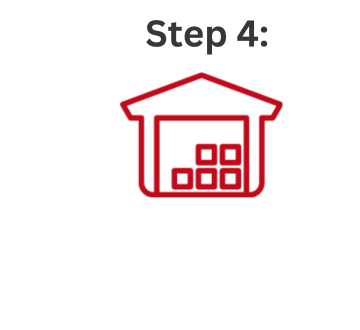
At arrival to The National Fire Equipment Recycling Authorised Waste Facility Waste Equipment is weighed at entry then and separated into holding stillages
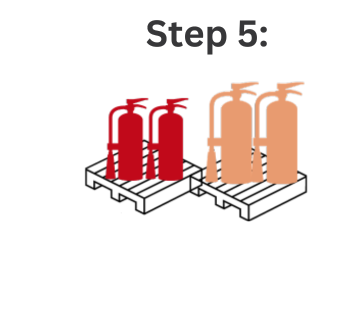
Waste Equipment is depressurised, contents extracted from hardware.
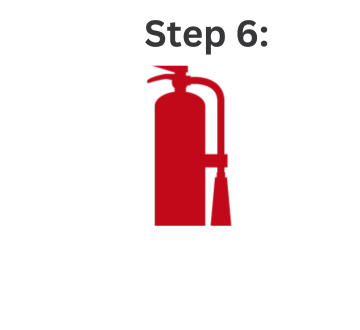
Hardware is dismantled, Headcaps removed: valves, syphon tubes and all other component parts are separated
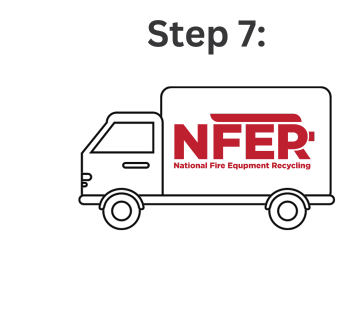
Separated waste is shipped for Incinerated (AFFF – Foam) or Bi-Product Recycling
In response to the ever-increasing restrictions imposed on Fire Fighting Equipment, Firetrade.ie has established The National Fire Equipment Recycling Facility.
This facility has been authorised by local Government, & carries a Waste Facility Permit to carry our specific activities relating to Portable Fire Extinguishers, Wheeled Type Fire Extinguishers and Fire Suppression Equipment.
NFER accepts the following:
Fire Extinguisher Equipment
This facility will enable “End of Life” Fire Extinguishers to be removed from the market & processed for recycling while adhering to all Irish & European guidelines. According to I.S. 291:2015+A:2022, any fire extinguisher still in service manufactured 10 years before their date of maintenance, is no longer compliant & must be disposed of. This also applies to extinguishers damaged beyond repair.
These Extinguishers are made up of; mild steel, aluminium, stainless steel, brass, plastic & rubber meaning almost 100% of the fire extinguisher will be saved from landfill & recycled.
This facility can also cater for the reception and temporary storage* of;
(a) Waste, returned or recovered refrigerant gases in refrigerant containers,
(b) Waste, returned or recovered halons in halon containers,
(c) Waste, returned or recovered fluorinated greenhouse gases in fluorinated greenhouse gas containers,
*Pending collection or onward transport prior to submission to recycling, reclamation or destruction in accordance with the relevant legislative requirements, where recovery has the meaning assigned to it under Reg. (EC) No. 2037/2000 and Reg. (EC) No. 842/2006. To include FM200 (HFC227ea), FE36, Halon1211 & 1301, Novec, All Inert Gases.
All The National Fire Equipment Recycling Facility activities are carried out strictly under Licence/Permit from Local Authority, EPA, National TFS Office, and National Waste Collection Permit Office
Fire Equipment is delivered to The National Fire Equipment Recycling Facility or The National Fire Equipment Recycling Facility will collect
Equipment is either then delivered to the facility or collected by the facility from the Contractor or Waste Generator Site
Equipment is weighed and recorded at entry to Facility. Generator Site, Contractor, Weight intake, Registration Number, and date
Equipment is checked for safety. C02 is captured and reused. Powder is used for fertilizer. Water undergos treatment.
Once equipment is safely emptied and depressurized Equipment is emptied, dismantled, and its parts are separated for recycling
Recycling Facility